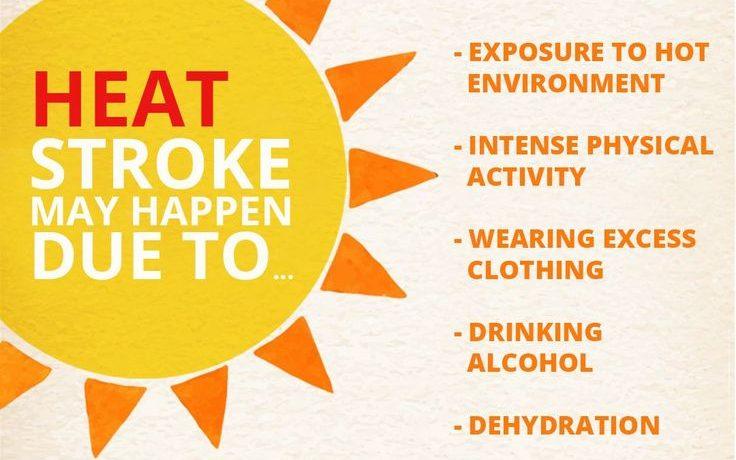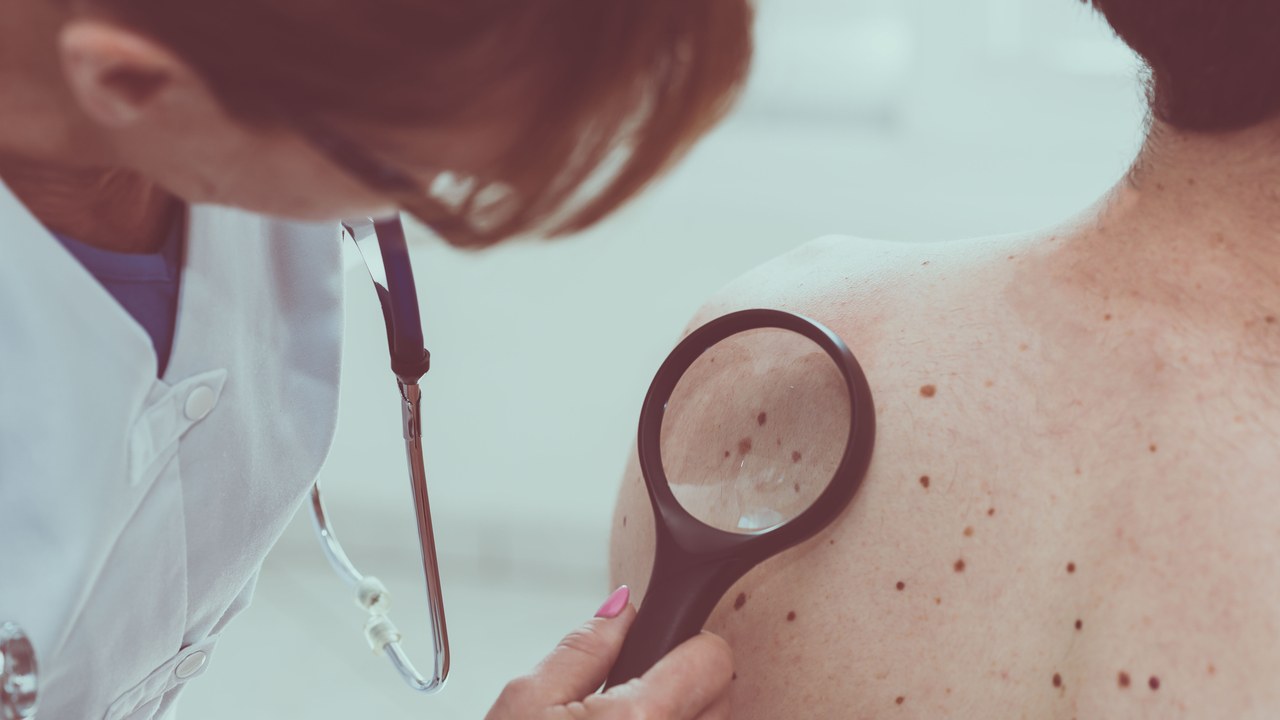Pakistan’s summer season is hot every year but this year summer season is extremely hot due to no rainfall. So, many heart-related diseases have become powerful on these hot days in which heat stroke is the major one. Heat stroke is the most serious form of heat-related injury. This heat injury happens when your body temperature is elevated dramatically. It is also a form of hyperthermia. Heat stroke occurs when you come in contact with heat or high temperature for a longer period of time or do some physical activities at a high temperature. This can cause a rise in the temperature of your body and which eventually leads to this heat injury.
On hot summer days, our body works in this way: when we work in hot weather our body temperature begins to rise. So, when body temperature rises, our perspiration system or we can say our sweating system will cool our body down. However when our body cooling system fails to cool down our body temperature and it reaches more than 40 degrees then we suffer from a severe heat stroke. Severe heat stroke is considered a medical emergency. If heat stroke is not treated on time this can leads to organ damage or even death. So, we have to prevent ourselves from this heat injury by not being exposed to heat.
In this article, we tell you about the causes, symptoms, risk factors, first aid help, and prevention of this deadly heat stroke.
Causes
There are some following causes that can lead you to heat stroke:
- Dehydration is one of the biggest causes of getting a severe heat stroke. When you don’t drink plenty of water, your body cooling system will not be able to work properly. Sweating helps 70 to 80 percent in cooling down your body. When you don’t drink water, you don’t sweat much and because of that, your body temperature starts rising. Dehydration also happens when you do heavy physical exercises in hot weather conditions.
- When you get a lot of sun exposure, especially during peak times from 12 to 3 pm.
- Working in hot and poor air-ventilated areas.
- When you get exposed to the bushfire, your body becomes heated up and dehydrated which eventually leads you to heat stroke.
- When you attend any large events like concerts or any crowded area in hot weather conditions you will get a chance of having a heat stroke.

Symptoms of Heat Stroke
Following are some symptoms of heat stroke:
- Your body reaches above 104F.
- Fainting may be the first sign for some people.
- Nausea
- Seizures
- The body will turn red, dry, and feel very hot due to the high temperature
- Vomiting
- Shortening of breath
- Headache
- Absence of sweating
- Cramps
- Muscle weakening
- Dizziness and light headedness
- Rapid heart beat
- Disorientation, confusion, or staggering
- Coma

Risk factors of Heat Stroke
Older people, children, pregnant ladies, and those people who suffer from heart diseases, lung diseases, or high blood pressure are mostly at high risk of getting a heat stroke. It also affects those people who live in apartments where there is no proper air conditioning or airflow system. Those who work outdoors also come under this dangerous heat injury radar. People of any age who don’t drink enough water are most likely at high risk of getting a heat stroke.
Major risk factors associated with this fatal heat-related illness are:
- Age: Children below age 4 and old people above age 64 are most likely to be at high risk of getting a heat stroke because of their slow adjusting heat capacity.
- Health conditions: Those people who have other health diseases like heart, lungs, or kidney diseases, overweight or underweight, high blood pressure, diabetes, or any other condition which can cause you a fever can move you closer to getting a heat stroke.
- Medicines: There are also some medicines that can give you a risk of having a heat stroke. Following are some medicines which can so: diet pills, seizure attack medicines, blood pressure medications, stimulants, sedatives, antidepressant medications and etc. Drugs like cocaine and methamphetamine also increased the risk of heatstroke.
First Aid Treatment for Heat Stroke Patient
When you see a person having a heat stroke, immediately call 1122 for emergency medical help or if the hospital is close to the location then take him or her to the hospital.
In the meantime, before medical help is coming you should give that person first aid help. Firstly take the person to the cooler area or shady area so that his heat contact becomes lesser. Then try to cool down that person’s body temperature. For this there are some cooling strategies:
- Turn on the fan over the patient.
- Wet his skin with water or put him in a tub of cool water.
- Remove the patient’s extra clothes, shoes, and socks.
- If the person is you g and healthy and having a heat stroke then apply an ice pack on the armpits, neck, and back. These are the area where blood vessels are closer to the skin. So cooling these areas helps to reduce the body temperature. You can also give them an ice bath which helps to cool down the body temperature.
Do not use ice packs on children, older people, and those who have any chronic illness because it can be dangerous for them.

Precautions from heat stroke
To stay away from heat stroke you have to
- Stay Cool
- Stay Hydrated
- Stay Informed

Stay Cool
- Do not wear extra clothes because they can raise your body temperature. Always choose light-weight, light-colored, and loosely fitted clothing during hot summer weather.
- Stay in the cool air-conditioned indoor areas as much as possible. Do not work in direct sunlight.
- A cool shower or bath also helps you to stay cool for a while.
- Do not do heavy physical work instead use mechanical aids and tools.
- Eat smaller and cold meals like salads.
- Use wet towels and hats when you go outside on hot days.
- Try to limit your outdoor activities.
- Wear sunscreen creams and sunglasses. This will help you to protect your body’s cooling system and protect your eyes from severe heat waves.
- Don’t ever leave your children and pets in the car because a car can heat up to dangerous temperatures even when windows are open which can lead to a severe heat stroke or even death.
Stay Hydrated
- Drink as many fluids, juices, and water. Don’t wait of getting thirsty or no matter how active you are, you have to stay hydrated by drinking a lot of cool drinks.
- Always keep a bottle of water with you no matter wherever you go.
- Stay away from alcohol, cold drinks, and very sugary drinks. These drinks can raise your body temperature so it’s better to avoid these.
- Avoid coffee and tea to prevent dehydration.
Stay Informed
- Always keep in touch with the weather news. Check your local weather high alerts and their preventing tips. Take a look where you have a cooling shelter in your area.
- Check your children and old family member twice a day, especially in severely hot weather conditions.

I hope you like and enjoy this informative article.




















